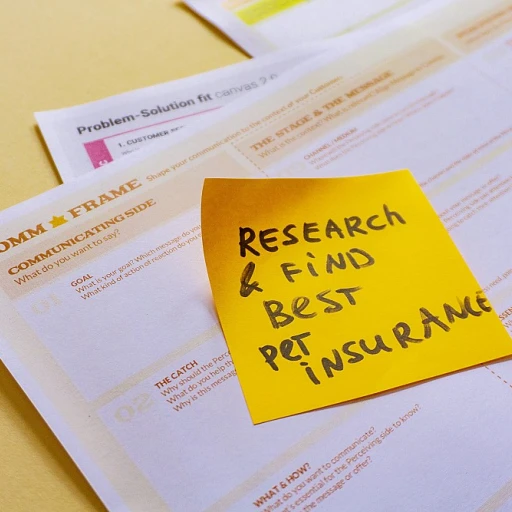Understanding the Certified Credit Research Analyst
Diverse Role of Certified Credit Research Analysts
Certified Credit Research Analysts (CCRA) play an integral part in the landscape of financial management and strategic planning within companies. These professionals possess expertise in various domains, including financial analysis, credit risk assessment, and credit rating methodologies, each contributing to informed decision-making processes.
Mastering Financial Aptitude
To achieve the CCRA certification, analysts undergo a rigorous study program involving coursework and exams focused on both qualitative and quantitative analysis credit. This comprehensive training ensures that individuals are well-versed in analyzing financial statements and conducting meticulous credit research analysis. Through case studies and research, they learn to implement credit risk models with precision, enhancing their skillsets to support strategic company planning.
The CCRA Certification Significance
The CCRA program levels ensure a progressive buildup of knowledge required for credit analysis, with each level exam testing their proficiency in key areas. By achieving certified status, these analysts join a community of professionals dedicated to upholding high standards of research and reporting. As they continue to expand their expertise credit, they align with the objective of maintaining financial stability, a critical component emphasized in strategic company planning. For more insights on cultivating such ventures, visit
Cultivating Ventures: The Intellectual Harvest of Top-Tier VCs.
Essential Knowledge for Strategic Impact
Through their capability to execute in-depth credit analysis and deliver comprehensive reports, CCRA certified professionals stand as invaluable assets to their organizations. Their contributions significantly influence strategic directions and financial policies, paving the way for enhancing financial stability and supporting growth initiatives within the company.
Strategic Importance in Company Planning
Strategic Integration of Credit Research Analysts
Incorporating a Certified Credit Research Analyst (CCRA) into strategic company planning is not just a trend; it’s a necessity for businesses aiming to thrive in today's competitive market. The expertise credit analysts bring to the table is invaluable, particularly in the realm of financial analysis and risk assessment. Their ability to conduct thorough credit research and produce detailed reports allows companies to make informed decisions that align with their strategic goals.
CCRA professionals are equipped with a deep understanding of credit risk and financial statement analysis. Their certification ensures they have mastered both qualitative and quantitative research analysis, which is crucial for evaluating potential investments and partnerships. By leveraging their knowledge of rating methodologies and credit rating systems, companies can better assess the financial health of potential partners and mitigate risks associated with credit exposure.
Moreover, the CCRA program includes rigorous case studies and exams that prepare analysts to handle complex financial scenarios. This level of preparation is essential for companies looking to enhance their strategic planning processes. By integrating the insights from certified analysts, businesses can develop robust financial models that support sustainable growth and stability.
For companies considering strategic expansion or diversification, the role of a certified credit research analyst becomes even more critical. Their ability to provide detailed risk assessments and credit analysis ensures that growth initiatives are backed by solid financial planning. This strategic importance is further highlighted in the context of supporting growth initiatives and collaborating with other departments, where the analyst's insights can drive cross-functional success.
In conclusion, the strategic importance of a CCRA in company planning cannot be overstated. Their comprehensive training and certification make them indispensable assets in navigating the complexities of financial markets and ensuring long-term business success. For more insights on strategic financial roles, consider exploring why startups should consider hiring an interim CFO here.
Enhancing Financial Stability
Boosting Financial Resilience and Stability
The integration of a Certified Credit Research Analyst (CCRA) into a company's strategic planning can greatly enhance financial stability. Their expertise in credit analysis provides a comprehensive understanding of the credit risks that a company may encounter.
Armed with a deep knowledge of financial statement analysis and credit risk assessment, analysts contribute valuable insights through detailed research reports. These insights assist in making informed decisions that can safeguard a company's financial health, especially in volatile markets.
Certified analysts leverage their training to apply both qualitative and quantitative research methodologies. Their ccra certification equips them with the ability to analyze and interpret complex financial data using standardized rating models. This allows them to forecast credit ratings and recommend strategies to mitigate potential risks.
Additionally, a research analyst's compilation of case studies and analysis credit can uncover patterns and emerging trends crucial for future planning. Engaging with these insights can fortify an organization's credit standing and prepare it to effectively navigate financial challenges.
Companies seeking to achieve resilient financial stability should consider joining forces with certified credit professionals. By doing so, businesses not only shore up their defenses against credit risk but also position themselves for ongoing growth and success. For more ideas on managing financial setbacks and preparing for future challenges, check out this
thoughtful approach.
Supporting Growth Initiatives
Advancing Growth Opportunities through Expert Credit Analysis
The role of a Certified Credit Research Analyst (CCRA) extends beyond financial scrutineering; it actively contributes to the expansion strategies within a company. By executing thorough credit analysis, these experts provide vital insights that facilitate informed decision-making, essential for strategically supporting growth initiatives.
Understanding risk is fundamental. A CCRA meticulously evaluates credit risk and creates precise risk assessment models. This ensures that expansion strategies are not only ambitious but also grounded in realistic financial forecasting. Engaging in detailed research analysis and credit risk evaluations, the CCRA certification empowers these analysts to harness both qualitative and quantitative data, bridging the gap between theoretical knowledge and practical application.
Moreover, these analysts play a crucial role in devising effective financial strategies. Their reports and credit ratings significantly influence the trajectory of growth plans. By dissecting financial statements and conducting statement analysis, they identify strengths and vulnerabilities in potential growth initiatives, highlighting areas that require strategic adjustment.
CCRA professionals excel in generating solutions that are aligned with the company's long-term vision. Through the adept use of case studies and comprehensive credit report evaluations, they craft strategies that propel the company forward while maintaining financial stability. Their expertise is not confined to analysis alone but extends to influencing and steering strategic decisions that hold the promise of strengthening the company's market position.
Collaboration with Other Departments
Fostering Interdepartmental Collaboration
The role of a Certified Credit Research Analyst (CCRA) extends beyond the confines of financial data assessment. A vital aspect of their function is to collaborate effectively with various departments within the organization. This collaborative approach facilitates a holistic understanding and integration of insights that are crucial for strategic company planning.
Financial stability and growth initiatives often require cross-departmental partnerships. For instance, a CCRA's expertise in credit analysis, rating methodologies, and risk assessment becomes invaluable when aligning with the finance department. They ensure that credit policies and financial strategies are aligned with the broader company goals, leveraging qualitative and quantitative analyses for informed decision-making.
Collaboration with the operations team allows CCRAs to provide insights on credit risk management and optimize credit models to enhance operational efficiency. Marketing teams, too, can benefit from engaging with credit research analysts. By gaining insights into consumer credit behaviors and financial market trends, marketing strategies can be fine-tuned to target the right audience effectively.
Furthermore, the CCRA certification and the rigorous study involved in passing the level exams equips these analysts with the knowledge to prepare and interpret comprehensive credit reports. These reports are essential for the executive board when considering mergers, acquisitions, or other significant financial decisions. An interactive exchange of reports and statements helps in cultivating an environment of informed strategic moves, ultimately aiding in the company’s financial growth.
Risk management departments also benefit from the synergy with CCRAs, whose assessments of credit risk and application of diverse rating methodologies help in crafting risk mitigation strategies. This collaboration not only bolsters the company’s financial stability but also secures its long-term viability in competitive markets.
In essence, the cross-functional collaboration where CCRAs join forces with other departments is crucial for a synchronized approach toward achieving strategic objectives. Such dynamics contribute to an organization's resilience and adaptability in the ever-evolving financial landscape.
Future Trends and Challenges
Anticipating Future Trends and Overcoming Challenges
As companies strive to refine their strategic planning, the role of a Certified Credit Research Analyst (CCRA) extends beyond current practices to anticipate future trends and challenges in the financial landscape. By staying abreast of the latest developments in credit research and analysis, these professionals can provide valuable insights and strategic foresight.
Emerging technological advancements, including artificial intelligence and machine learning, are transforming credit analysis. Certified analysts are expected to adapt and integrate these technologies to enhance the accuracy of credit rating methodologies and risk assessments. The use of advanced models can refine qualitative and quantitative research, improving the efficiency of credit risk management.
Moreover, ongoing economic fluctuations and regulatory changes necessitate that CCRAs remain proactive in updating their knowledge. Continuous professional development through credit research studies and exams is vital for maintaining a competitive edge. This commitment to learning ensures that analysts can effectively interpret financial reports and perform comprehensive statement analysis.
Given the complexities of modern financial markets, collaboration with other departments, such as risk management and strategic planning, becomes paramount. A well-rounded CCRA can provide crucial insights that align credit analysis with broader organizational goals, thus supporting growth initiatives and financial stability.
Finally, as companies expand globally, understanding international credit risk and adapting strategies to different regulatory environments will be indispensable. CCRAs, equipped with the appropriate CCRA level certification and experience, play a key role in navigating these challenges, ensuring that companies are well-positioned to capitalize on global opportunities and mitigate potential risks effectively.














